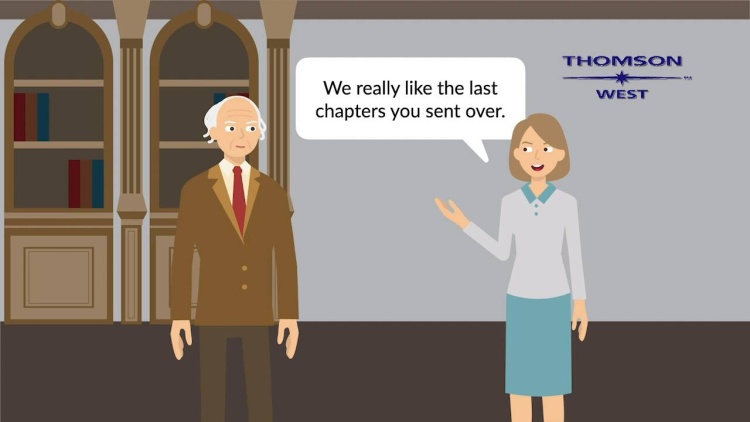Chodos v. West Publishing Co.
United States Court of Appeals for the Ninth Circuit
292 F.3d 992 (2002)
- Written by Craig Conway, LLM
Facts
Rafael Chodos (plaintiff), a California attorney who specialized in the law of fiduciary duty, entered into a standard Author Agreement with the Bankcroft-Whitney Publishing Company (Bankcroft-Whitney) to write a treatise on the topic. During the time that Chodos was writing the treatise, Bankcroft-Whitney was sold to West Publishing Company (West) (defendant). After Chodos spent over 3,600 hours during three years writing the book, his manuscript was rejected by West. West did not reject Chodos’ manuscript because it was written poorly, but rather cited mainly marketing and economic reasons why it was choosing not to publish the treatise. In fact, West admitted that the manuscript was of “high quality” and that its decision was not due to any shortcomings in Chodos work. Chodos filed suit in state court for breach of contract and sought damages. West removed the case to federal court. Chodos amended his complaint to seek restitution on a quantum meruit basis and dropped the breach of contract claim. Thereafter, West filed a motion for summary judgment. The district court held that under the terms of the contract, West’s decision not to publish the treatise was within its discretion and granted West’s motion for summary judgment. Chodos appealed.
Rule of Law
Issue
Holding and Reasoning (Reinhardt, J.)
What to do next…
Here's why 907,000 law students have relied on our case briefs:
- Written by law professors and practitioners, not other law students. 47,100 briefs, keyed to 996 casebooks. Top-notch customer support.
- The right amount of information, includes the facts, issues, rule of law, holding and reasoning, and any concurrences and dissents.
- Access in your classes, works on your mobile and tablet. Massive library of related video lessons and high quality multiple-choice questions.
- Easy to use, uniform format for every case brief. Written in plain English, not in legalese. Our briefs summarize and simplify; they don’t just repeat the court’s language.





